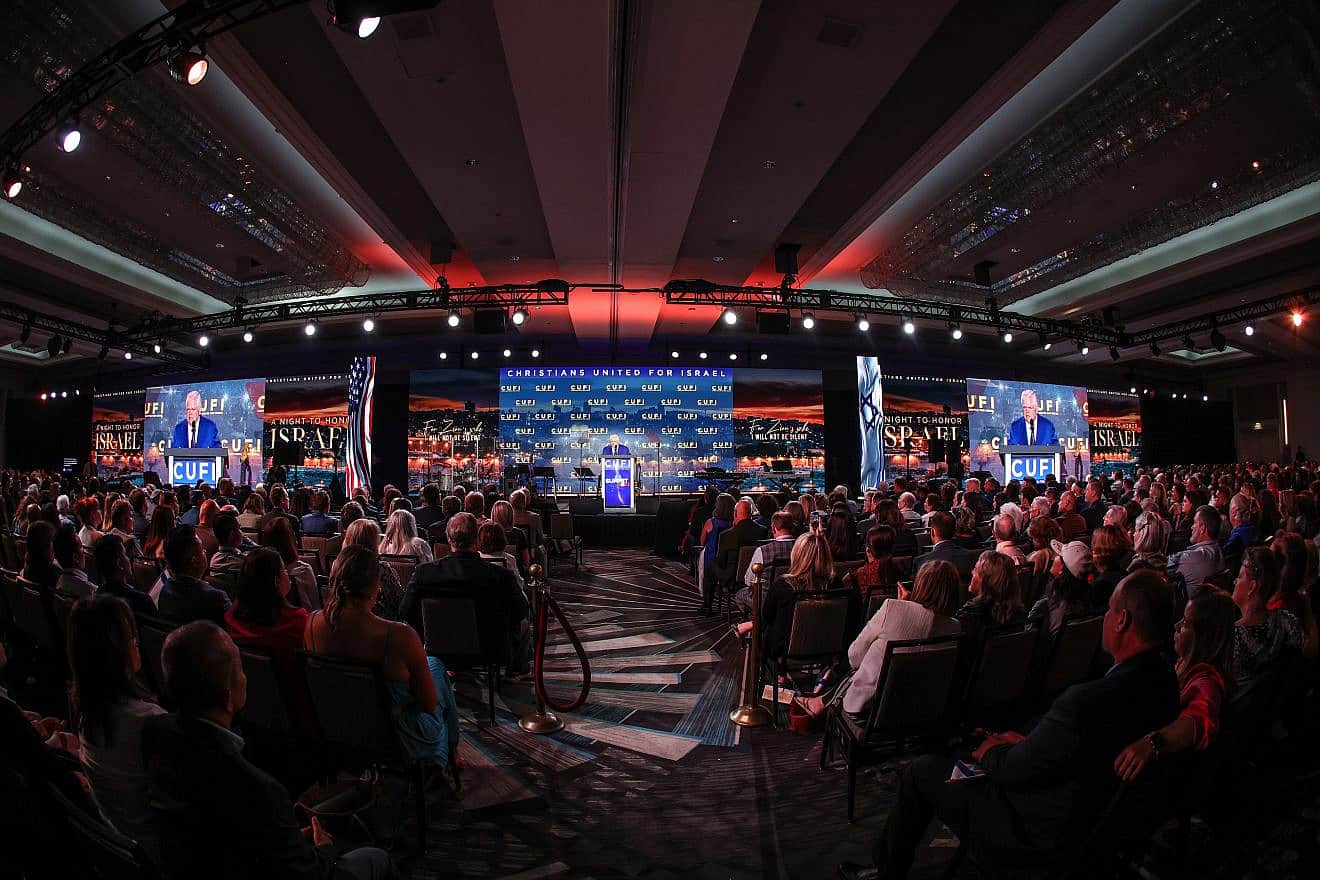In the aftermath of the Oct. 7 Hamas massacre and the subsequent onslaught of antisemitism, Christians have an opportunity to write a new chapter in their history; one in which they show up as allies and friends of the Jews. Thousands of Christians around the world are doing just that.
The long and painful history of Jewish-Christian relations has seen few heroes and many moral failures. Both Protestantism and Catholicism, at different moments in their history, adopted antisemitism as doctrine. One famous example was Pope Paul IV’s Cum Nimis Absurdum, in which he called for Jews to live in ghettos and wear identifiable garments so they could be spotted from afar—ideas Hitler would later coopt.
Around the same time, Martin Luther published “On the Jews and Their Lies,” in which he instructed all Christians: “First, to set fire to [the Jews’] synagogues or schools and to bury and cover with dirt whatever will not burn, so that no man will never again see a stone or cinder of them.”
In our own day, the nausea-inducing videos pouring out of London, New York City, Sydney, Los Angeles and all over the world serve as a wake-up call for anyone who naively believed “never again” meant never again. Since Oct. 7, antisemitism has increased as much as 1,200%.
Nonetheless, Christians are rising to the horrible occasion.
In recent weeks, Jewish university students have faced unthinkable threats and hostility. One of the most poignant examples came from Cooper Union College in New York City, where several Jewish students were forced to hide in the library while pro-Hamas “protestors” pounded on the locked door. At Cornell University, which has more Jewish students than any other Ivy League school, a barrage of credible threats of murder, rape and other forms of violence against Jewish students led the police to lock down the university’s kosher dining hall.
While the responses from these universities and many others have been lackluster at best, Franciscan University of Steubenville announced the creation of an expedited transfer system for Jewish students fearing for their lives and safety on other campuses. Father Dave Pivonka, president of the university, explained: “Our radical fidelity to Christ and the Catholic faith demands of us fraternal charity towards our Jewish brothers and sisters, as it does towards all people.”
At the same time, several Christian-led advocacy campaigns have worked to combat the shifting narrative and recenter the massacre of over 1,400 Jews by Hamas. In Times Square, Christians United for Israel launched a national campaign with their “Don’t Look Away” ad, imploring people not to forget the Oct. 7 atrocities. Since then, CUFI has continued to post educational content, call for prayers and encourage people to support Israel and the Jewish people in the face of antisemitism.
On Oct. 26, the Philos Action League—a global network of Christians committed to combatting antisemitism—organized a day of solidarity. Hundreds of Christians showed up in almost 200 cities around the world to bring a card and white roses—a nod to the Nazi-era White Rose resistance movement—to their local Jewish community.
The same week, Franciscan University and the Philos Project held a conference called “Nostra Aetate and the Future of Catholic-Jewish Relations at a Time of Rising Antisemitism.” The conference, originally scheduled to coincide with the five-year anniversary of the Tree of Life synagogue shooting, providentially aligned with the current crisis. The event featured many Catholic and Jewish intellectuals, and culminated in the “Coalition of Catholics Against Antisemitism,” the most robust Catholic theological document condemning antisemitism to date. It has so far been signed by more than 350 leading Catholic voices.
In the quiet corners of their churches, thousands of congregations and worship movements big and small have voiced their support for Israel and stood in solidarity, generosity and prayer with their Jewish neighbors.
The Evangelical worship movement Upperoom announced a “Night of Hope for Israel” in Dallas, Texas.
Jentezen Franklin, New York Times bestselling author and lead pastor of the Free Chapel church, shared with his one million followers his congregation’s campaign to raise money to build an Eshkol Resilience Center in the south of Israel to help families affected by the massacre.
The Friday following the attacks, Holy Nativity Episcopal Church in Georgia partnered with a local Jewish community for a night of prayer for Israel.
In Arizona, Christ Church of the Valley opened its services with a call for moral clarity. “I want to make one thing clear: Hamas is an evil terrorist organization that attacked Israel. … They raped women. They burned babies,” lead pastor Ashley Wooldridge said. “And my concern as a pastor, when I look at the situation, is we can’t defend against evil if we don’t define evil, and it breaks my heart that there are so many people … even here in the United States, that will not acknowledge the evil that has happened.”
Hundreds more churches, from California to New York and everywhere in between, showed similar solidarity.
The darkness shows no sign of waning, but Christians everywhere have brought a ray of light by demonstrating their commitment to changing the script of Christian-Jewish relations. Perhaps, years from now, when history asks, “Where were the Christians?” we’ll finally be able to answer: “Right in the thick of it.”


























